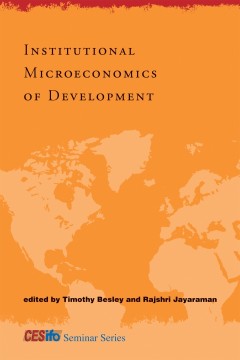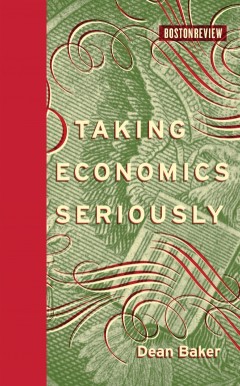Filter by

Metallogenic Theory and Exploration Technology of Multi-Arc-Basin-Terrane Col…
This open access book presents a new structural model of “multi-arc-basin-terrane system” based on the in-depth research of the Nujiang-Lancangjiang-Jinshajiang region, especially several Paleo-Tethys ophiolitic mélange belts and sets of arc-basin systems, and a new orogenic model of “The Hengduan shan Mountains” based on penetrated research on spatial-temporal framework and orogenic m…
- Edition
- -
- ISBN/ISSN
- 978-981-99-3651-9
- Collation
- XV, 307
- Series Title
- -
- Call Number
- -

Vulnerable Households in the Energy Transition
This open access book explores the energy transition / energy poverty nexus in the European Union, including the implications of the transition and related policies for the household sector. Written by experts on energy economics, energy studies and related fields, it examines the impacts and costs of the energy transition (including those caused by carbon pricing) for the economy and for famil…
- Edition
- -
- ISBN/ISSN
- 978-3-031-35683-4
- Collation
- -
- Series Title
- -
- Call Number
- -

Weekly newspaper publishing economies in 1931 and 1932 : an analysis based on…
- Edition
- -
- ISBN/ISSN
- -
- Collation
- 32 p. ; 23 cm
- Series Title
- -
- Call Number
- -
- Edition
- -
- ISBN/ISSN
- -
- Collation
- 32 p. ; 23 cm
- Series Title
- -
- Call Number
- -

Institutional Microeconomics of Development
"The narrative of development economics is now infused with discussions of institutions. Economists debate whether institutions-or other factors altogether (geography, culture, or religion)-are central to development. In this volume, leading scholars in development economics view institutions from a microeconomic perspective, offering both theoretical overviews and empirical analyses spanning t…
- Edition
- -
- ISBN/ISSN
- 9780262289184
- Collation
- 1 online resource (x, 250 pages) :illustrations.
- Series Title
- -
- Call Number
- -

Taking economics seriously
'There is nothing wrong with economics, Dean Baker contends, but economists routinely ignore their own principles when it comes to economic policy. What would policy look like if we took basic principles of mainstream economics seriously and applied them consistently? In the debate over regulation, for example, Baker--one of the few economists who predicted the meltdown of fall 2008--points out…
- Edition
- -
- ISBN/ISSN
- 9780262266093
- Collation
- 1 online resource (87 pages).
- Series Title
- -
- Call Number
- -

Does Game Theory Work? The Bargaining Challenge
"This volume brings together all of Ken Binmore's influential experimental papers on bargaining along with newly written commentary in which Binmore discusses the underlying game theory and addresses the criticism leveled at it by behavioral economists."--Jacket.OCLC-licensed vendor bibliographic record.
- Edition
- -
- ISBN/ISSN
- 9780262268554
- Collation
- 1 online resource (viii, 409 pages) :illustrations.
- Series Title
- -
- Call Number
- -

The Empire of Value: A New Foundation for Economics
Translation of the author's L'empire de la valeur."With the advent of the 2007-2008 financial crisis, the economics profession itself entered into a crisis of legitimacy from which it has yet to emerge. Despite the obviousness of their failures, however, economists continue to rely on the same methods and to proceed from the same underlying assumptions. Andr?e Orl?ean challenges the neoclassica…
- Edition
- -
- ISBN/ISSN
- 9780262323901
- Collation
- 1 online resource (x, 350 pages) :illustrations
- Series Title
- -
- Call Number
- -

Economic analysis of markets and games: Essays in honor of Frank Hahn
These original essays focus on a wide range of topics related to Frank Hahn's distinguished work in economics. Ranging from market analysis and game theory to the microeconomic foundations of macroeconomics and from equilibrium and optimality with missing markets to economics and society, they reflect the diversity of modem research in economic theory. What distinguishes Hahn's work and many of…
- Edition
- -
- ISBN/ISSN
- 9780262271202
- Collation
- 1 online resource (640 pages)
- Series Title
- -
- Call Number
- -

Assembling Policy: Transantiago, Human Devices, and the Dream of a World-Clas…
An examination of how human beings are brought into the planning of complex infrastructure projects, through analysis of a controversial public transportation project.OCLC-licensed vendor bibliographic record.
- Edition
- -
- ISBN/ISSN
- 9780262330954
- Collation
- 1 online resource.
- Series Title
- -
- Call Number
- -

Economic theory and cognitive science: Microexplanation
"A Bradford Book."In this study, Don Ross explores the relationship of economics to other branches of behavioral science, asking, in the course of his analysis, under what interpretation economics is a sound empirical science. The book explores the relationships between economic theory and the theoretical foundations of related disciplines that are relevant to the day-to-day work of economics -…
- Edition
- -
- ISBN/ISSN
- 9780262316217
- Collation
- 1 online resource (x, 444 pages)
- Series Title
- -
- Call Number
- -
 Computer Science, Information & General Works
Computer Science, Information & General Works  Philosophy & Psychology
Philosophy & Psychology  Religion
Religion  Social Sciences
Social Sciences  Language
Language  Pure Science
Pure Science  Applied Sciences
Applied Sciences  Art & Recreation
Art & Recreation  Literature
Literature  History & Geography
History & Geography